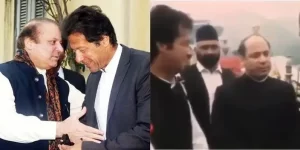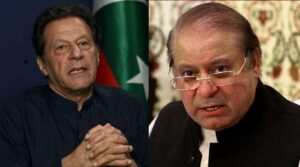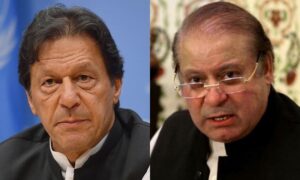Ex-Prime Minister Nawaz Sharif’s Return: Implications for Pakistan’s Politics


Introduction:
The return of former Prime Minister Nawaz Sharif to Pakistan has sparked significant speculation and debate about its potential impact on the country’s political landscape. Sharif, who was ousted from power in 2017 and subsequently convicted on corruption charges, has been residing in London for medical treatment. However, his recent return has raised questions about the future direction of Pakistani politics and the potential consequences for the ruling government.


Background:
Nawaz Sharif’s political career has been marked by both triumphs and controversies. Serving as Pakistan’s prime minister on three separate occasions, he has been a prominent figure in the country’s political landscape for decades. However, his tenure has also been marred by corruption allegations, leading to his disqualification from office in 2017.


Sharif’s return to Pakistan comes at a time when he is facing multiple legal challenges. While a high court suspended his sentence, he remains in custody over accusations of leaking classified diplomatic cables for political gains. These charges have further polarized the political environment in Pakistan, with supporters viewing them as politically motivated and opponents demanding accountability.
Impact on Pakistani Politics:
Sharif’s return has the potential to significantly impact Pakistan’s political dynamics. As the leader of the Pakistan Muslim League-Nawaz (PML-N), one of the country’s major political parties, his presence could galvanize his supporters and rejuvenate the opposition. The PML-N has a significant voter base, particularly in Punjab, Pakistan’s most populous province, and Sharif’s return may energize the party’s grassroots.
Furthermore, Sharif’s return could lead to increased political polarization in the country. The ruling Pakistan Tehreek-e-Insaf (PTI) party, led by Prime Minister Imran Khan, has been facing criticism over its handling of the economy and governance issues. Sharif’s return may provide an opportunity for the opposition to exploit these weaknesses and mount a stronger challenge in the upcoming elections.
However, it is important to note that Sharif’s legal troubles and his party’s internal divisions could also hinder his ability to mobilize support effectively. The PML-N has faced internal rifts since Sharif’s disqualification, with some members defecting to other parties. These divisions could weaken the party’s overall impact and limit its ability to mount a cohesive opposition against the ruling government.
Conclusion:
The return of ex-Prime Minister Nawaz Sharif to Pakistan has undoubtedly injected a new level of uncertainty and excitement into the country’s political landscape. While his presence may energize his supporters and provide a boost to the opposition, the outcome of his legal battles and the internal dynamics within his party will ultimately determine the extent of his influence. As Pakistan prepares for the upcoming elections, the political future of the country remains uncertain, with Sharif’s return adding another layer of complexity to an already volatile situation.



